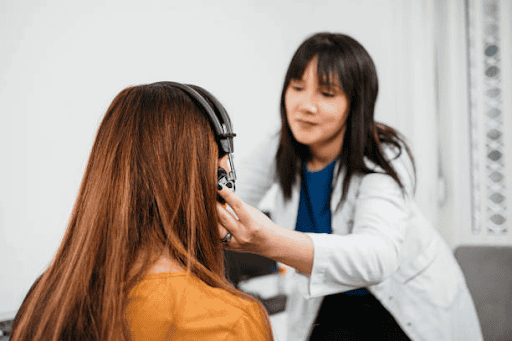
- Signs Your Earwax Buildup Needs Professional Attention - May 29, 2025
- Preparing for a Hearing Test and What You Should Bring - May 16, 2025
- A Step-by-Step Look at How Hearing Aids Make Sounds Sharper - May 5, 2025
Hearing plays a vital role in your daily interactions, yet it’s often easy to overlook subtle changes in your ability to hear. Recognizing the early signs of hearing loss can help you take action before it becomes a more serious problem. Understanding when to schedule a hearing health exam can protect your long-term hearing health and improve your quality of life.
Common Signs of Hearing Loss
Hearing loss doesn’t always happen suddenly. It can be gradual, making it harder to notice the changes right away. One common sign is frequently asking others to repeat themselves. If you often find yourself saying “What?” or leaning in closer to hear, it could indicate that your hearing is not as sharp as it once was.
Another indicator is difficulty hearing in noisy environments. Restaurants, parties, or crowded spaces can become overwhelming when background noise makes it hard to follow conversations. If you constantly struggle to understand others in these settings, it’s a good time to consider scheduling a hearing health exam.
Turning the Volume Up Too High
Do you find yourself raising the volume on your TV or radio more than you used to? This is another sign that your hearing may be changing. What used to be a comfortable listening level might now seem too quiet. If family or friends mention that your devices are louder than usual, it could be an early sign of hearing loss.
Raising the volume too high can also have an impact on your relationships. Loved ones might get frustrated if they constantly have to compete with loud background noise, which can lead to communication barriers. Protecting your hearing now could help prevent these issues from affecting your daily life.
Ringing in the Ears
Tinnitus, or ringing in the ears, is a common symptom that people experience before noticing hearing loss. This ringing can vary in intensity and may come and go. It can also occur in one or both ears. While occasional ringing may not be a serious issue, persistent tinnitus is often a sign that something is wrong with your hearing.
If you’re experiencing ringing or buzzing sounds in your ears that don’t seem to go away, a hearing health exam can help identify the underlying cause. A hearing health professional can provide solutions to reduce the impact of tinnitus and protect your hearing from further damage.
Difficulty Following Conversations
Struggling to keep up during conversations is one of the most common signs of hearing loss. You might notice this when talking to someone over the phone or in face-to-face interactions. Missing parts of sentences, misunderstanding what people say, or needing clarification frequently could indicate a decline in your hearing.
In group conversations, hearing loss can make it difficult to follow the flow of the discussion. You may feel left out or rely on visual cues to understand what’s being said. These challenges often worsen in noisy environments, which makes it even harder to communicate effectively.
What Happens During a Hearing Health Exam
If you’re noticing any of these signs, it’s a good idea to schedule a hearing health exam. During the exam, a hearing health professional will begin by asking about your hearing concerns and medical history. This discussion helps them understand if any underlying factors could be affecting your hearing, such as noise exposure or family history.
Next, a series of hearing tests will be performed. These tests usually involve listening to sounds at different pitches and volumes to determine the softest sounds you can hear. You may also be asked to repeat words or sentences to assess your ability to understand speech. These tests are painless and take about an hour to complete.
How to Prepare for a Hearing Health Exam
Before your hearing health exam, it’s helpful to think about specific situations where you’ve had difficulty hearing. This can give your hearing health professional valuable insight into your unique hearing needs. It’s also a good idea to bring a list of medications you’re currently taking, as some drugs can affect your hearing.
If you use hearing aids or other hearing devices, bring them along so the hearing health professional can evaluate how well they’re working for you. After your exam, the hearing health professional will discuss the results with you and offer personalized recommendations based on your hearing health. This could include hearing aids, custom ear protection, or advice on managing tinnitus.
Taking Action for Your Hearing Health
Hearing loss affects millions of people, but the good news is that early detection can make a big difference. Regular hearing health exams are important for maintaining your overall well-being, especially as you age. Whether you’ve noticed subtle changes or have been struggling for some time, getting a professional evaluation is the first step in preserving your hearing.
By staying proactive and seeking help when you notice signs of hearing loss, you can enjoy better communication, stronger relationships, and an improved quality of life. Don’t wait until your hearing deteriorates further. Schedule a hearing health exam with us to address your concerns and protect your hearing for years.
